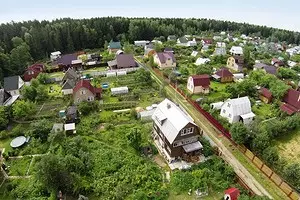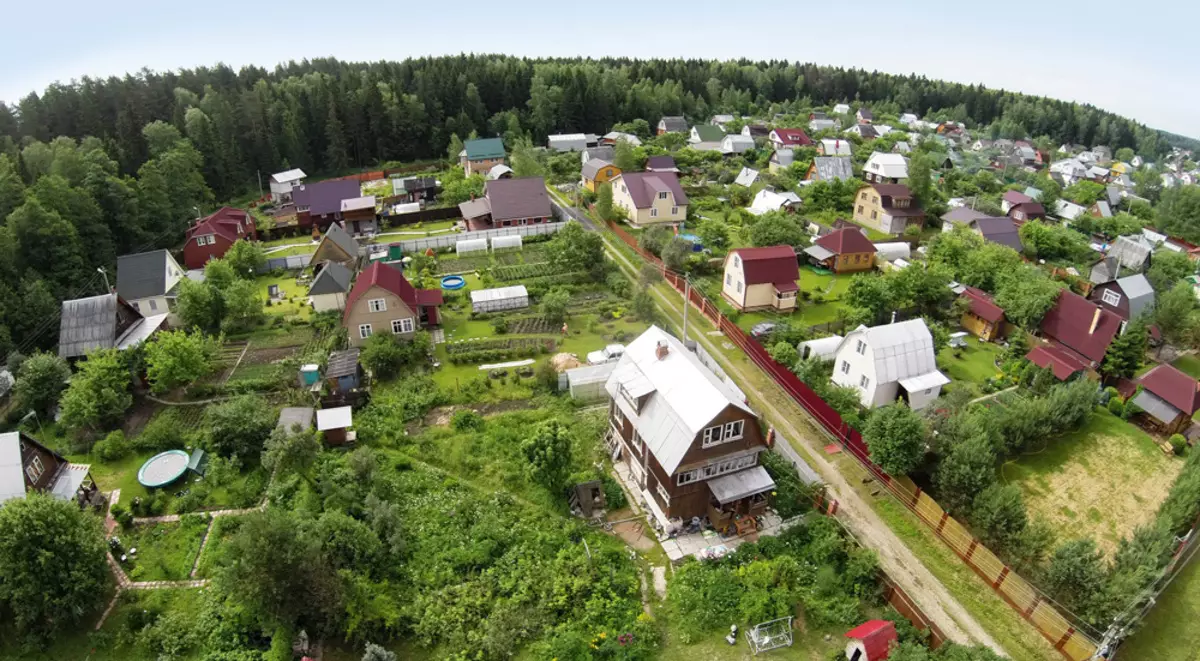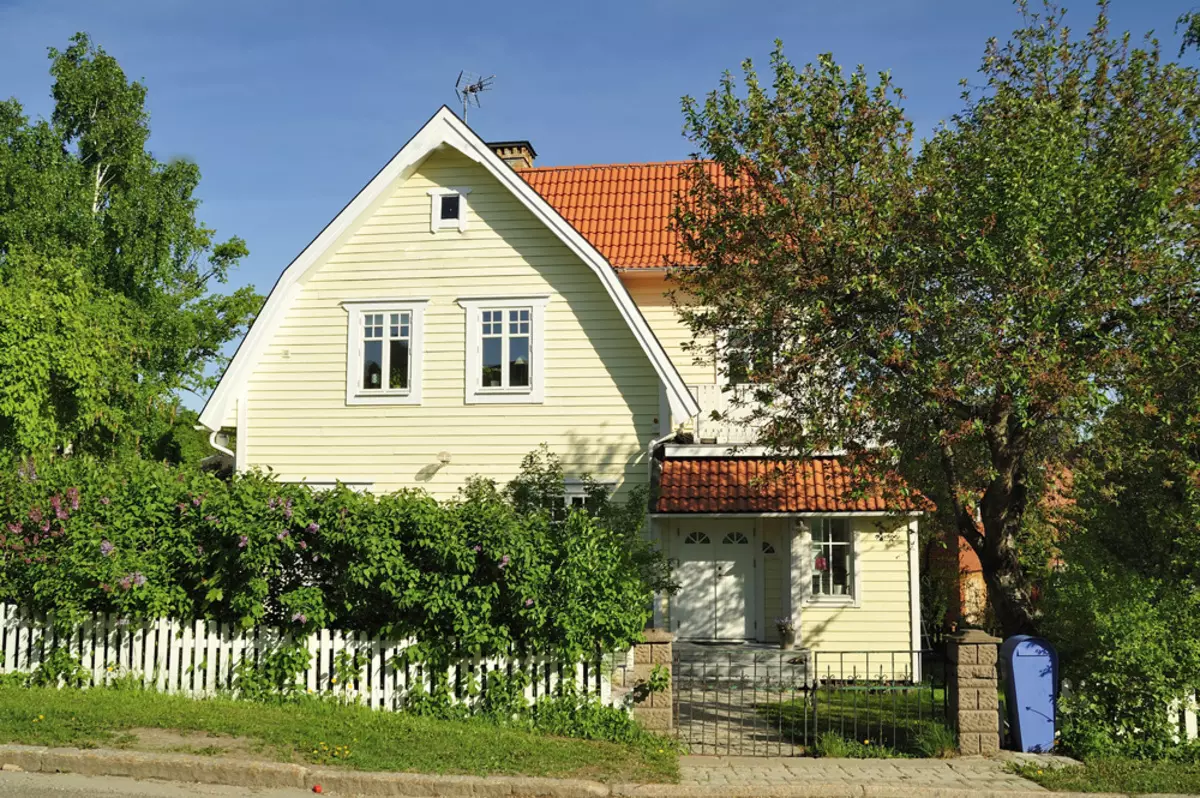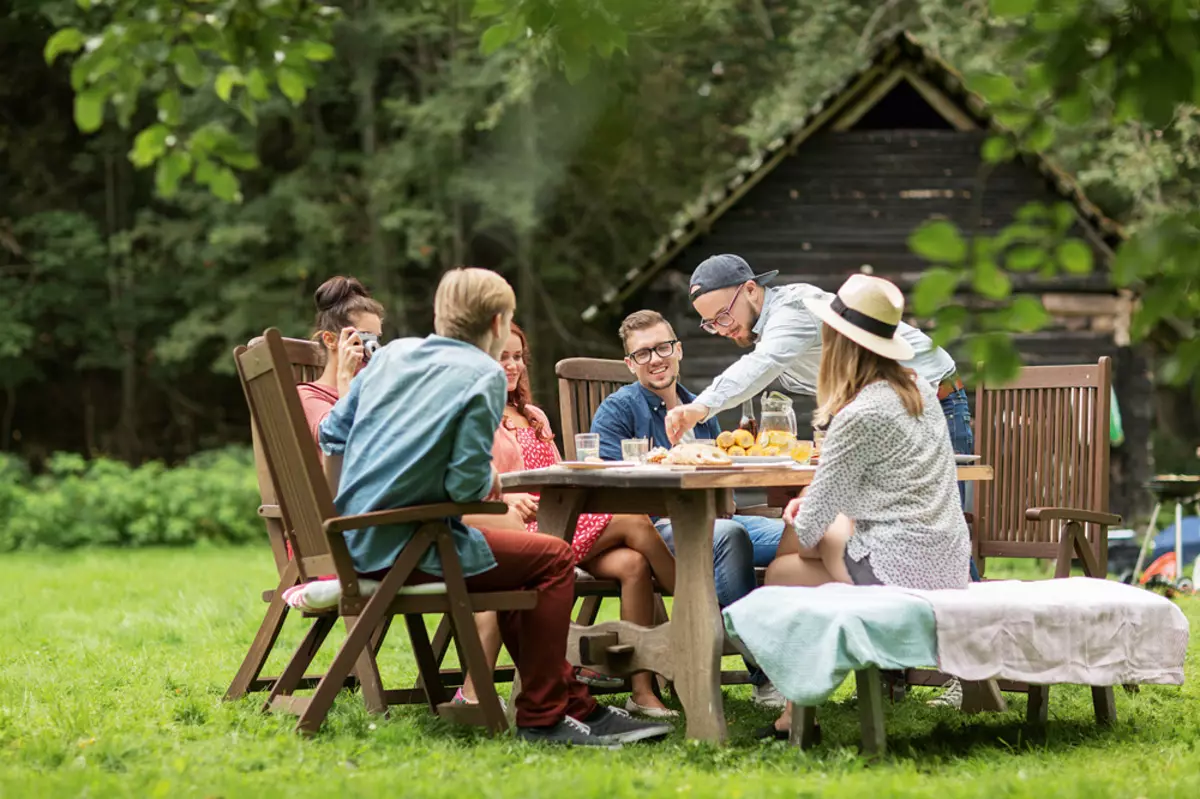In Russia, a new federal law was adopted, determining the rules for the entire 60 millionth annual garden community from January 1, 2019. What will change?


Photo: shutterstock / fotodom.ru
Usually, the cottage is both a holiday home, a sanatorium, and a children's health camp, and a gym, and a vegetable fruit supplier to the table.
Changing titles
The Dual Question in our country at different times was engaged in the Ministry of Natural Management, the Ministry of Regional Development, the Ministry of Economic Development. The result of such multi-way is the lack of data on the number of daches and sites, because, according to the most modest estimates, a third of the country households are not entirely listed.The adoption of a new law is primarily necessary for the unification of many terms, and will also help solve a number of economic problems, such as connecting to power grids, gas, water supply.
The concept of "country farm" will not be used more, since 2019, the associations of summer houses, gardeners and gardeners can exist only in two organizational forms - a horticultural or garden partnership.
This change is a step towards simplifying statuses, because previously organizational forms in which dackets could be united were whole nine! Therefore, the words "Association", "Cooperative", "Partnership" should now disappear from the names. Changing the name attracts the status and change. On the lands of vegetable non-profit partnerships, it is impossible to build at home, even if it is even for seasonal stay. On Earth, which has such an appointment, it is possible to build only non-vacant economic buildings for storing inventory or grown products. If the construction on the landmark site does not meet these requirements, you will not register the right of ownership of it until the type of permitted use of the site is changed.
Please note: if at the moment there is a structure at your site that has a "garden" status, and you already have a document on the right of ownership of this property, it is not necessary to reissue it.
Catering unions automatically become horticultural. At the same time, no one has the right to demand the change of status on the garden partnership. In garden sites, you can build capital buildings (having a foundation), including residential buildings.
According to the new law, entrance fees, gardeners and gardeners will now pay the annual membership fees and targeted - on the urgent needs of SNT members; Individual gardeners will also have to contribute to the budget of contributions along with all
Development rules
The planning and development of gardening areas will continue to be applied quite serious requirements prescribed in SNiP 30-02-97. A major residential building, a garden house for seasonal use, garages and economic buildings can be placed on the gardening plot. These properties can be issued on ownership (and pay taxes, of course). We remind you that the so-called dacha amnesty will be extended, but for registration of the property since 2017, we need a technical plan (cost of preparation - from 10 thousand rubles). True, the construction of up to 50 m² can not be registered.
We draw your attention: the theme of fences in the country sites, which remains very relevant over the course of many years, is quite simple. In accordance with registered in SNIP 30-02-97, the standing fence with a height of more than 2 m is generally prohibited, and between neighboring sites, the fence must be made of such a material that skips light. However, there is not a single rule of the law that would prevent themselves to negotiate their neighbors and to slaughter their sites as convenient to them. In addition, the partnership is entitled to independently determine the rules that relate to fences.
Remember: Even when the fence is raised in such a way that all existing rules are violated, it is possible to remove it only by court decision. If the owner of the site is not hurry to perform it, you can contact the bailiff service for assistance.

Photo: shutterstock / fotodom.ru
Step by step: register a plot and buildings
- We appeal to the territorial separation of the Federal State Registration Service, Cadastre and Cartography, to which your partnership belongs, invite the cadastral engineer for the manufacture of an integrated plan.
- After the necessary measurements are made (most often for this does not require the presence of the owners), we get a cadastral passport.
- Apply to the technical inventory bureau to prepare the technical plan of the house.
- We pay for state duty.
- Cressing paper through the Internet portal "My Documents" in Rosreestr. We receive an extract from the Unified State Register of Real Estate.
One territory - one partnership
According to a new law, the territory of conducting citizens of gardening or gardening for their own needs is the territory, the boundaries of which are determined in accordance with the documentation on the planning of the territory approved in relation to this territory.This means that from the new year a clear principle of territorial subordination will be valid: one territory is one partnership.
To date, several legal entities can act on one territory - non-profit associations, and the territory of general use and the total infrastructure in these legal entities are alone.
In the event of disputes, there will be a land plot of a partnership that was created earlier than others. In the absence of a project planning and building development, the second (and subsequent) partnership can be eliminated by the court decision, if it does not do this on its own.
Finally, such a separation of the territory will also be useful for organizing water supply areas. The centralized water supply line is costly, so the dackets prefer to drill individual or general (for several sections) well. It is very expensive and long (to obtain a license for water extraction for 25 years, it is necessary to make a lot of expertise and receive many approvals, the costs of which exceed, according to the most modest estimates, 500 thousand rubles). In the meantime, gardeners and gardeners can use common wells without a license for two coming years (until 2020). It is assumed that for the period of this transition period, a simplified procedure for licensing wells for SNT and ONT will be prepared.
Communication fees
It is important that contributions (there are now only two types, there are no more entrances) will be paid non-cash. Dachits will receive payment receipts, contributions will be credited to the bank account of the partnership. This is good, because it will not be necessary to store them in the Chair's safe, and then enroll in the account. Yes, and abuses, illegal financial transactions and a variety of fraud with the use of funds received from subsidiaries, should be less.
Individuals are individuals who do not want to enter into members of the horticultural partnership, according to the old law, they should not pay annual contributions on a par with members of the partnership. Now, in addition to the usual payment of utility services (water, light, gas, if it is summed up, of course, the garbage collection, protection) Individual gardeners will pay the same with members of the horticultural or vegetable fee.
It must be said that with the imposition of new duties and the rights of individuals-individuals will be expanding. They can participate in the general meetings of members of horticultural associations, vote on issues related to the frequency and amount of contributions. The only thing that remains unchanged is not to accept individuals in the elections of the Chairman and Board of Board.
Sale of surplus yields of their own garden or a vegetable garden nor new law is not regulated, therefore, it is not necessary to formally draw up the status of the PI for sale, for example, greenery or radishes will not be required. So, in practice, the issue will be solved, most likely, are still: at the discretion of the controlling authorities.
Managing partnership
The chairmen of garden partnerships will now choose for 5 years (the previous time was much less - 2 years). There will be the term of the powers of other partnership bodies of the Board, the Audit Commission. It should be noted that the number of terms of the control bodies of the partnership in a row is now unlimited.
At the same time, the rules that concern early addition of authority from the chairman of the partnership, which does not cope with the fulfillment of their duties, remain in force. The ineffective chairman (or members of the Board, or unclean on the hand of the auditors) can be re-elected. For this, it is necessary to convene an extraordinary meeting on demand at least one fifth from the total number of members of the partnership.
Please note: members of the Board and their relatives may not be part of the Audit Commission.
The new law establishes the limit number of members of the Board - at least three people, but not more than 5% of the number of members of the partnership. Too numerous board will be more difficult than the efficient. In addition, for the legitimacy of decisions made by the Board, it is necessary that at the same time at least half (50%) of its members attended, collect them very difficult. In addition, the more managers, the higher the membership fees on them.
Members of the partnership have the right to meet accounting reports and receive copies of documents, but not free. The size of the board must be set by the General Meeting.
The new levers of influence on non-payers and deboshirov law does not provide. Malicious defaulters can be excluded from members of the partnership, but it is impossible to deprive the right to use common property - roads, power grids and water supply, platform for garbage collection. But I cannot vote at the general meeting such a non-comrade. And debts still need to be recalled in court.

Photo: shutterstock / fotodom.ru
Common property
Property of general use will now be in the overall ownership of land owners located within the borders of the territory of the partnership. General Earth is land plots for which roads are laid where communications, water supply and power grid are organized. The new law limits the maximum area of these lands, but only for those partnerships that will be created after its adoption - from 20 to 25% of the square, which is occupied by the total all personal land plots.The entire volume of property will be divided in proportion to the area of the plots. At the same time, the owner of the site is not entitled to allocate its share in the right of common property, as well as alienate its share or perform any actions that entail the transmission of this share separately from the ownership of the site.
There is a question with taxes from the common property. To date, taxes on land and common property are paid by the SNT accountant from the annual membership fees. Now it will be possible to pay tax independently, in proportion to the area belonging to the village of the land plot and, accordingly, in proportion to the share in collective ownership. This will not bring special benefits, but it will be possible to control whether all the necessary contributions to the state budget were committed. In the event of bankruptcy, this can be used in order not to bear collective responsibility for the debts of the partnership.
Note that the collective ownership of the new law can not be divided into a share, but to give a whole legal entity entirely - for example, to transfer the road to municipal authorities. In this case, maintenance, repair and other manipulations will be carried out at the expense of the local budget. However, there are doubts that such wishes are found.
Taxes
The land tax was calculated from the cadastral value, and the rates set the local authorities in the amount of from 0.1 to 0.3%. Therefore, in those regions where the land price is high (for example, in the suburbs, where, according to some estimates, and lives the greatest population of summer houses), the tax for many was excessively large. Especially acutely felt pensioners who are many among the owners of country sites. For this reason, it was decided to release pensioners from land tax to country houses.
In addition, additional benefits can be established by local laws, freed from the tax.
Note that from the beginning of 2018, the procedure for applying for tax breaks was simplified. Now the preferential categories of taxpayers are entitled (not required, as it was before) together with the statement to submit documents confirming the right to benefit. If such documents are not presented, the tax authority according to the information specified in the statement independently requests the necessary information from the authorized bodies, and then informs the taxpayer about the results.
The horticultural partnership located in the settlement may become a partnership of housing owners if all houses on its territory have the status of year-round living, and the land is intended for individual housing construction.
Fears of dacnikov
So far, the law has not entered into force, it is difficult to say how much he is successful and will really be the life of gardeners easier with his introduction.
However, there are several moments to pay attention now.
- First, in the new law there are no more provisions for the state support of gardening (and this is the financing of the repair of old roads or the creation of new, repairs of the power grid, the organization of medical items). The problem is that in the regions where local acts of gardening support were adopted by local lawmakers will have to significantly revise the legislation in this area.
- Secondly, the issue of connecting to power grids remained unresolved. To date, dacnishers have to conclude a non-standard agreement with local authorities. The result is the fee for electricity for summer residents is very high, especially well it feel the owners of houses in non-geasy partnerships.
- Thirdly, it is not entirely clear how the distribution of the burden of collective responsibility will be organized in the event of a bankruptcy of the partnership. Garden (vegetable) partnership can only be a legal entity, its members own common property in certain shares. In case of bankruptcy, each member of the SNT will have to answer financially (its share of property).
- Fourth, there is no clear understanding of what exactly and with what documents can be built in the garden plot and whether there is a need to re-register country buildings.
In any case, we hope that the goal of the new law is to build a new, clear and well-coordinated system of management in horticultural and garden partnerships - will be achieved, and summer residents will be satisfied.

